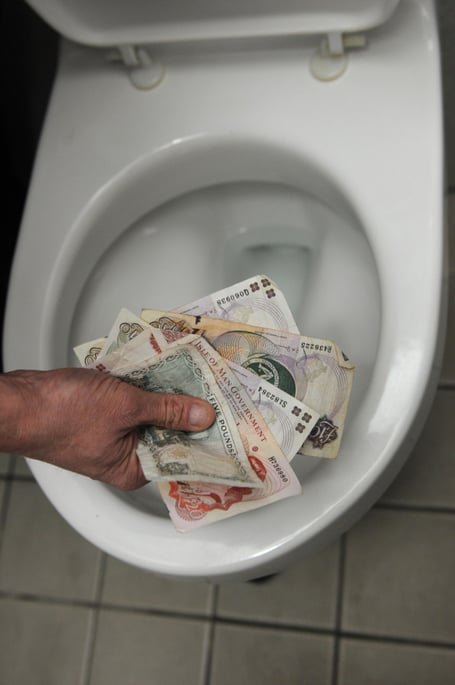A new pricing strategy from Manx Utilities will see the household water rate slashed by nearly a third - but the toilet tax more than doubled.
Domestic electricity tariffs will be increased by inflation-only, based on the lower consumer price index measure, over the next five years.
Subject to Tynwald approval, charges for water and sewerage will be rebalanced, with a cut in water rates of more than 32% next year from the current 341p in the pound to 230p in the pound, plus inflation.
But the sewerage rate - or the toilet tax - will be increased from the current 98p in the pound to 210p in the pound from April next year, plus inflation.
There will be further increases each year at the prevailing rate of inflation.
For the majority of customers there will be no overall impact as the reduction in the water rate will match the increase in the sewerage rate.
MU chairman Dr Alex AllinsonMHK said domestic customers won’t be paying more - and some - those with septic tanks - will be paying less.
And he said the total utility bills for households will be £150 a year less than would have been applied under the previous pricing plan.
There was outcry in 2017 when Manx Utilities announced that it would increase the sewerage rate in line with Retail Prices Index inflation, then 6.4%, rather than CPI, which was 1.9% then.
From April electricity tariffs and the electricity standing charge will rise by CPI inflation, which is currently 2.3%.
In October last year, Tynwald agreed to write £95m off the MU’s debt, reducing it to a still-whopping £470m.
The board was told to come back with a new pricing strategy that would meet its commitment to pay off the debt by 2034, while balancing costs of providing services and protect customers from huge hikes in bills.
Water and sewerage charges were frozen this year while the cost of electricity rose by a below-inflation 1.88% for domestic customers, pending the independent external review.
The pricing strategy is due to go before this month’s Tynwald sitting.
Dr Allinson said: ’We clearly have a large debt legacy to manage and repay.
’Thanks to the support of Tynwald and Treasury, this pricing strategy will avoid excessive price increases for our customers and provide stability and certainty for the next five years.
’Rebalancing of water and sewerage charges will reduce water rates and increase sewerage rates to better reflect the cost of delivering these services.’
He added: ’Furthermore, electricity prices will be stabilised and only increased by the annual rate of inflation (CPI).
’Manx Utilities is committed to working with government to support low and middle-income households who will not be disadvantaged by these changes.’
While the independent report recommended scrapping the current 50% discount for commercial rates, the strategy proposes a more gradual reduction of 5% per year to 25%.
But this will still increase bills for an average business by £100 a year by the end of the five-year strategy.
A potential advanced electricity metering system for consumers is being looked at in line with the most up-to-date systems in the UK.
Dr Allinson said to meet its commitment to pay off the debt by 2034, the authority would still need to reduce costs. There are no plans for jobs losses, he insisted.
The toilet tax was first introduced in April 2014, initially as a £50 fixed sum, rising to £100 the next year before it was replaced with a ’fairer’ system based on property rateable values.




.jpeg?width=209&height=140&crop=209:145,smart&quality=75)
Comments
This article has no comments yet. Be the first to leave a comment.